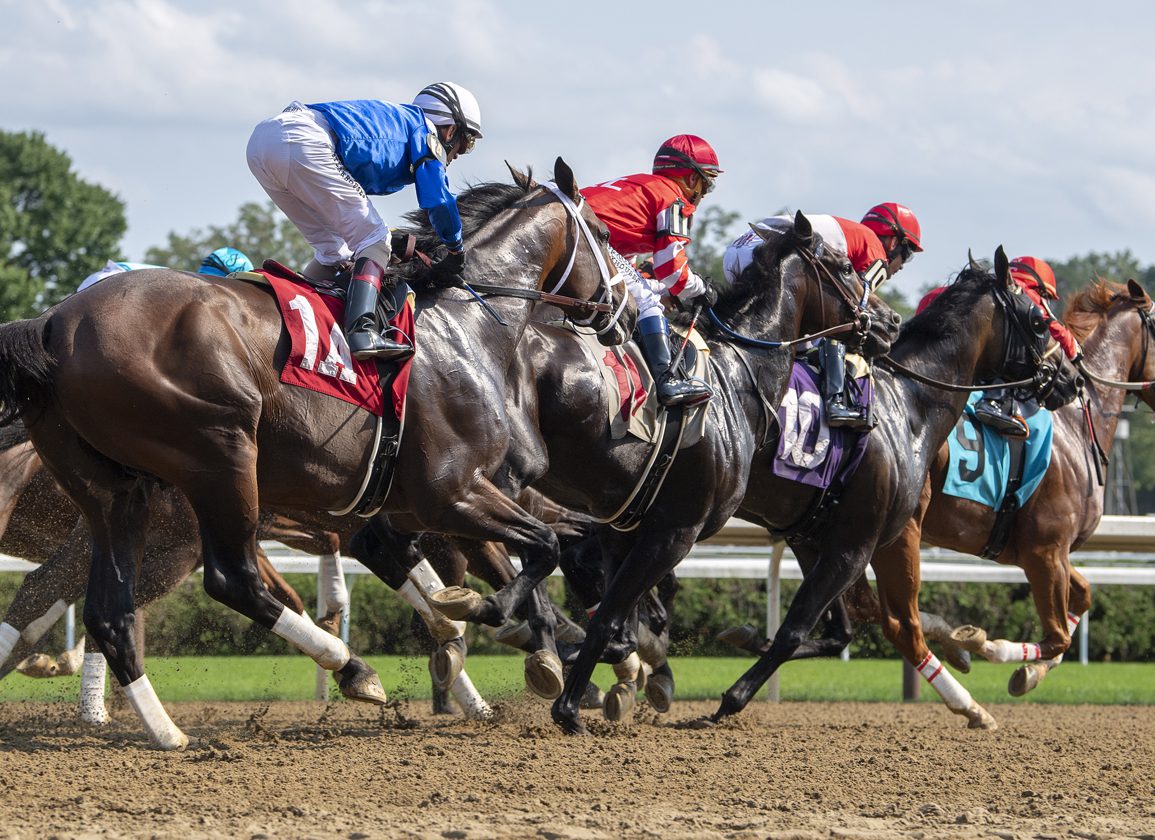By T. D. Thornton
The Supreme Court of the United States Monday officially intervened in the 3 1/2-year legal odyssey in which the National Horsemen's Benevolent and Protective Association (NHBPA) and 12 of its affiliates are trying to wipe out the Horseracing and Safety Integrity Act (HISA) as an allegedly unconstitutional law.
That intervention took the form of a Sept. 23 Supreme Court order signed by Justice Samuel Alito, Jr. directing the U.S. Court of Appeals for the Fifth Circuit not to issue its pending mandate stemming from a recent Fifth Circuit opinion that HISA's enforcement mechanism is unconstitutional.
The Supreme Court order stated that the Fifth Circuit's mandate “is hereby administratively stayed pending further order of Justice Alito or of the [Supreme] Court.”
Alito additionally ordered that the NHBPA and other plaintiffs in the lawsuit file a response to the HISA Authority's application for a stay on or before Monday, Sept. 30.
The HISA Authority defendants had made that application for a stay last Thursday.
An administrative stay is used to freeze legal proceedings until a court can more fully consider and then rule on a party's request for expedited relief.
An administrative stay is not the same thing as a court issuing an injunction or making a broader ruling in an overall case, a point raised by Eric Hamelback, the chief executive officer of the NHBPA, when TDN contacted him Monday for comment on the Supreme Court order.
“The administrative stay does not reflect any opinion about the merits of an argument,” Hamelback wrote in an email. “This is simply a mechanism to give the Court time to gather and read briefing from all sides [and] our team will be ready to forcefully press our arguments within our response.”
The HISA Authority, through a spokesperson, emailed a comment to TDN that stated, “This is a good first step to ensure that the HISA Authority can continue to do everything in its power to protect the safety and integrity of Thoroughbred racing.”
Although the NHBPA and the HISA Authority are at odds over whether the federal law that regulates the sport is constitutional, they both agree–and have indicated for months now in court filings and media interviews–that the Supreme Court needs to be the entity that resolves the current “circuit split” in which different U.S. appeals courts have issued conflicting opinions about whether or not HISA is constitutional.
“We now have our case in front of the Supreme Court, and all parties agree that the SCOTUS should hear the case,” Hamelback wrote. “We also all believe that it should do so on an expedited basis to secure a final decision for horsemen and the horse racing industry by the end of this term [in June 2025].”
In a different case, a Sixth Circuit Court of Appeals panel opined Mar. 3, 2023, that Congressional changes to the law in 2022 made HISA completely constitutional.
In the HBPA vs. HISA case in the Fifth Circuit, a panel there opined July 5, 2024, that HISA's enforcement provisions are unconstitutional (even though the Fifth Circuit agreed with the Sixth that HISA's rulemaking methods were constitutional).
Then last Friday, Sept. 20, the U.S. Court of Appeals for the Eighth Circuit affirmed a ruling out of a lower federal court in Arkansas that had denied a preliminary injunction sought by horsemen in Arkansas and Iowa to halt HISA and its Anti-Doping and Medication Control (ADMC) program.
That three-judge Eighth Circuit panel opined that, “The Fifth Circuit declared the enforcement provisions of the statute unconstitutional because it thought the [FTC's] power to modify and add to the rules of the Authority does not 'authorize basic and fundamental changes in the scheme designed by Congress.'” But, the Eighth Circuit opinion continued, “Like the Sixth Circuit, we are satisfied that the statute's enforcement provisions are not unconstitutional on their face and in all of their applications.”
Here's how the HISA Authority summarized its points in the Sept. 19 application for a stay of the Fifth Circuit mandate pending the filing and disposition of a “writ of certiorari,” which is the term for a formal request for the Supreme Court to take a case.
“Three federal courts [including the Sixth Circuit] have now resolved materially identical challenges to the amended Act and reached the same conclusion: HISA is constitutional. But the Fifth Circuit recently contradicted that consensus, holding that HISA's enforcement provisions facially violate the private-nondelegation doctrine…
“The Fifth Circuit's outlier decision should not be permitted to trample other courts' considered judgments pending disposition of the Authority's forthcoming petition for a writ of certiorari. But Respondents–including a national association whose members race across the country–brazenly seek to leverage the Fifth Circuit's facial judgment to bar HISA's enforcement in other circuits nationwide,” the filing continued.
“For that reason (among others), each factor that guides this Court's stay consideration is easily satisfied here,” the filing stated.
“First, given the acknowledged circuit split on a question of undisputed legal and practical importance, all agree that review by [the Supreme Court] is necessary and likely…
“Second, there is at least a 'fair prospect' that a majority of [the Supreme Court] will concur with the Sixth Circuit's view…
“Third, maintaining the status quo is necessary to prevent irreparable harm,” the filing stated.
“Allowing the Fifth Circuit's decision to take effect nationwide (as Respondents openly seek), wherever [NHBPA] members race across the country, would inflict a serious blow to separation-of-powers and comity principles…” the filing stated. “The data are clear: more horses would die and more cheaters would prosper.”
Not a subscriber? Click here to sign up for the daily PDF or alerts.






